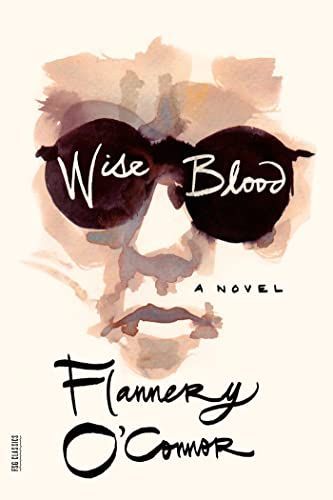
Wise Blood
Wise Blood, Flannery O'Connor's first novel, is the story of Hazel Motes who, released from the armed services, returns to the evangelical Deep South. There he begins a private battle against the religiosity of the community and in particular against Asa Hawkes, the 'blind' preacher, and his degenerate fifteen-year-old daughter. In desperation Hazel founds his own religion, 'The Church without Christ', and this extraordinary narrative moves towards its savage and macabre resolution. 'A literary talent that has about it the uniqueness of greatness.' Sunday Telegraph 'No other major American writer of our century has constructed a fictional world so energetically and forthrightly charged by religious investigation.' The New Yorker 'A genius.' New York Times
Reviews
BC Hark@vaporvisions
Adam Scharf@beethoven89
Jim Hagan@aranyalma
Matthew Royal@masyukun
Ryan LaFerney@ryantlaferney
Dana Kraft@dkatx
Trever@kewlpinguino
Alexia Cambaling@alexiacambaling
yasi@middleschoolbf
riya ☆@lilcritt3r
Zachary Thompson @zactt
Benjamin Harlow@Benjamin
Juan Sacco@catsup_plate
Isabella Agostino@bellaray
Samantha Plakun@samanthaplakun
Sadie Kimbrough@skimbs
Miles Silverstein@thewaxwingslain
Sonia Grgas@sg911911
Elena Kuran@elenakatherine
Teddy Calavera@teddycalavera
Erika@erikasku
Will Vunderink@willvunderink
Dr Seth Jones@sdjones
Luke Stamps@lukestamps